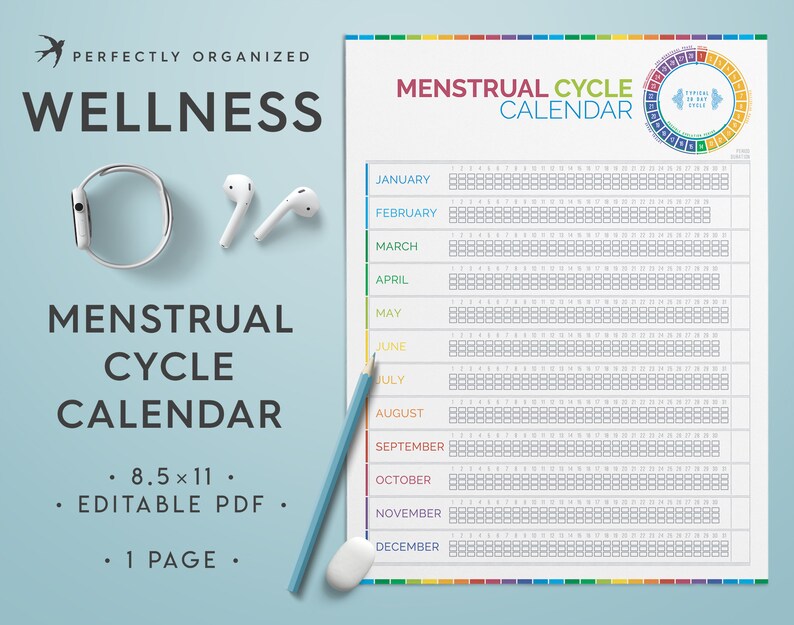

Since there are only six days each month in which you can get pregnant, FABMs can help take the guesswork out of when you will ovulate. Clinical guidelines suggest that your fertile window falls between days 10 and 17 in a typical 28-day menstrual cycle. (It’s important to note that using FABMs as a form of birth control is not as effective in preventing pregnancy as other forms of birth control, such as pills or an IUD.) What Are the Benefits of Fertility Tracking? FABMs can be used to predict when you’re most likely to conceive each month or as a natural form of birth control - giving you an indication of which days you should avoid sexual intercourse or use a barrier method such as a condom. This fertile window includes the five days before your ovaries release an egg each month and the day of ovulation. These are the six days you’re most likely to get pregnant based on the idea that sperm can live in the uterus for up to five days and an egg can survive 12-24 hours after ovulation.įertility awareness-based methods (FABMs) are the methods used to naturally track when your body is entering the fertile window. What Is Fertility Awareness?įertility awareness (also commonly called fertility tracking, ovulation tracking, natural family planning, or fertility charting) is knowing and recognizing when you’ve entered the fertile window of your menstrual cycle. We’ve broken down each method for you so that you can determine the best fertility awareness method for you and your body. We’ve also compiled a list of our favorite fertility tracking apps and tools that can make getting pregnant (or not getting pregnant) easier. Some are more effective than others and some work best when used in combination with other methods. There are many different methods, apps, and devices you can use to tracking your fertility. Whether you’ve just started your journey of trying to conceive, have been try for a while without success, or aren’t quite ready to start a family, tracking the days you’re most fertile (called fertility awareness) can help. It’s all about getting to know your body and its natural rhythm so that you can better predict when ovulation will occur.

Your doctor can also advise about other lifestyle changes that might better your chances of conceiving.Did you know that tracking your fertile days can increase your chances of getting pregnant? Or even help you figure out which days to avoid having intercourse so that you don’t get pregnant? In order to increase the chances of pregnancy, avoid alcohol, smoking and consider limiting caffeine.įor additional information and help, discuss your pregnancy plans with your health care provider so they can assess any current medications you’re taking that might hamper fertility. Consider tracking and charting your basal body temperature and monitoring changes in your cervical mucus as well, for additional accuracy. Use our ovulation tracker in conjunction with tracking your own symptoms to determine which days of your cycle you’re fertile. Maintaining a healthy weight can also help increase the chances of conceiving, as being overweight or underweight can increase the risk of complications. If you’re trying to get pregnant, the American College of Obstetricians and Gynecologists (ACOG) recommends having sex on your fertile days, ideally every day or every other day. Ovulation Calculator: Determine Your Fertile Windowįrequent sex on your fertile days, which includes five days before and the day of ovulation, can increase the odds of conceiving in a given month. While we work hard to provide accurate and up-to-date information that we think you will find relevant, Forbes Health does not and cannot guarantee that any information provided is complete and makes no representations or warranties in connection thereto, nor to the accuracy or applicability thereof. The compensation we receive from advertisers does not influence the recommendations or advice our editorial team provides in our articles or otherwise impact any of the editorial content on Forbes Health. Second, we also include links to advertisers’ offers in some of our articles these “affiliate links” may generate income for our site when you click on them. This site does not include all companies or products available within the market. The compensation we receive for those placements affects how and where advertisers’ offers appear on the site. First, we provide paid placements to advertisers to present their offers. This compensation comes from two main sources.
#Menstrual period tracker and ovulation calendar for free#
To help support our reporting work, and to continue our ability to provide this content for free to our readers, we receive compensation from the companies that advertise on the Forbes Health site. The Forbes Health editorial team is independent and objective.


 0 kommentar(er)
0 kommentar(er)
